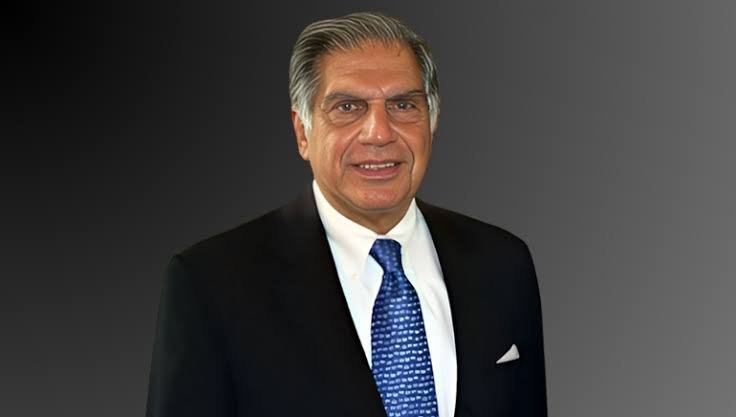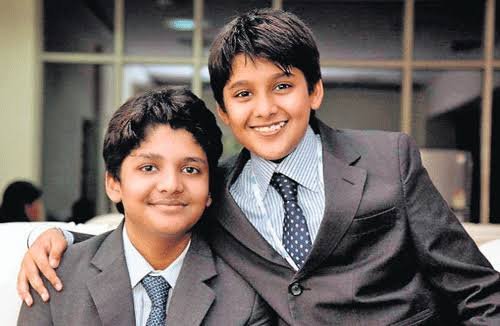Early Life and Education
Ratan Naval Tata was born on December 28, 1937, in Bombay (now Mumbai), India, into the prominent Tata family. The Tata family has a long legacy of contributing to India’s industrial and philanthropic sectors, starting with Jamsetji Tata, who founded the Tata Group in the late 19th century. Ratan Tata is the son of Naval Tata, who was adopted by Sir Ratanji Tata, the younger son of Jamsetji Tata. Ratan Tata’s parents, Naval and Sonoo Tata, separated when he was 10 years old, and he was subsequently raised by his grandmother, Lady Navajbai Tata.
Ratan Tata attended the Campion School in Mumbai until the 8th grade and then moved to the Cathedral and John Connon School. He later went to the Bishop Cotton School in Shimla and completed his secondary education at Riverdale Country School in New York City. He graduated from Cornell University with a degree in Architecture and Structural Engineering in 1962 and later attended the Advanced Management Program at Harvard Business School in 1975.
Early Career and Joining the Tata Group
Ratan Tata started his career at the Tata Group in 1961. His first job was on the shop floor of Tata Steel in Jamshedpur, where he worked with the blue-collar workers, shoveling limestone and handling the blast furnace. This experience gave him a deep understanding of the grassroots operations and fostered a sense of respect and empathy for the workers, which would later become a hallmark of his leadership style.
In 1971, he was appointed the Director-in-Charge of the National Radio and Electronics Company Limited (Nelco), which was in dire financial straits at the time. Under his leadership, Nelco’s fortunes improved significantly, although it faced challenges later due to market conditions. This early leadership experience was crucial in shaping his approach to managing businesses.
Vision and Mission: Transforming Tata Group
Ratan Tata became the Chairman of Tata Group in 1991, succeeding J.R.D. Tata. At the time, the Tata Group was a sprawling conglomerate with businesses ranging from steel and automobiles to chemicals and hospitality. However, many of its companies were running independently, with little synergy and strategic coherence.
Ratan Tata’s vision was to consolidate the Tata Group’s businesses and make them more competitive on a global scale. He embarked on a major restructuring plan, which included divesting non-core businesses and investing in high-potential sectors. His mission was to transform the Tata Group into a cohesive and globally competitive entity.
One of his first major moves was the acquisition of Tetley Tea in 2000, which made Tata Tea (now Tata Global Beverages) one of the world’s largest tea companies. This was followed by other significant acquisitions, including Corus (now Tata Steel Europe) in 2007, Jaguar Land Rover in 2008, and the purchase of Brunner Mond in 2006 (which later became part of Tata Chemicals).
Staff Selection and Leadership Style
Ratan Tata was known for his keen eye for talent and his ability to inspire and motivate his employees. He believed in empowering his staff and giving them the freedom to innovate and take risks. His leadership style was characterized by humility, integrity, and a deep sense of responsibility towards his employees and the community.
One of his key contributions was fostering a culture of innovation within the Tata Group. He encouraged his companies to invest in research and development and to pursue bold and innovative ideas. This led to the development of groundbreaking products such as the Tata Indica, India’s first indigenously developed car, and the Tata Nano, the world’s cheapest car.
Contributions to Society and Philanthropy
Ratan Tata’s commitment to philanthropy and social responsibility is legendary. Under his leadership, the Tata Group significantly increased its contributions to social causes, focusing on areas such as education, healthcare, rural development, and the environment.
One of his notable philanthropic initiatives was the establishment of the Tata Medical Center in Kolkata, a world-class cancer treatment and research facility. He also played a key role in the creation of the Indian Institute of Science, Education, and Research (IISER) and supported numerous educational institutions and scholarships.
Ratan Tata’s personal donations have also made a significant impact. In 2008, following the terrorist attacks in Mumbai, he provided financial support to the victims and their families. His commitment to social causes has earned him numerous accolades, including the Padma Vibhushan, India’s second-highest civilian award.
Air India: From Nationalization to Privatization
One of the most dramatic episodes in Ratan Tata’s career was his involvement with Air India, the national airline of India. The Tata Group originally founded Air India in 1932, and it was later nationalized in 1953. Ratan Tata had always expressed a keen interest in aviation and was passionate about restoring the airline’s former glory.
In the early 2000s, the Indian government decided to privatize Air India due to its mounting financial losses and operational inefficiencies. Ratan Tata, in collaboration with Singapore Airlines, submitted a bid to acquire a stake in the airline. However, the bid was unsuccessful due to political and bureaucratic hurdles.
In 2020, the Indian government once again decided to sell Air India. This time, Tata Group submitted a successful bid and acquired the airline in 2021. The acquisition marked a historic moment, as Air India returned to its original founders after nearly seven decades of government ownership. Ratan Tata expressed his joy and commitment to making Air India a world-class airline once again.
Legacy and Impact
Ratan Tata retired as Chairman of Tata Group in 2012, handing over the reins to Cyrus Mistry. However, he continues to be involved with the group as Chairman Emeritus and remains a respected figure in the business world. His legacy is defined by his transformative leadership, his commitment to social responsibility, and his unwavering integrity.
Under his leadership, the Tata Group expanded its global footprint, became more competitive, and enhanced its reputation for ethical business practices. His vision and mission have inspired countless entrepreneurs and business leaders in India and around the world.
Ratan Tata’s story is not just one of business success; it is a story of resilience, innovation, and a deep commitment to making a positive impact on society. His journey from the shop floors of Tata Steel to the boardrooms of global corporations is a testament to his dedication and passion.
Conclusion
Ratan Tata’s life and career are a source of inspiration for aspiring entrepreneurs and business leaders. His visionary leadership transformed the Tata Group into a global powerhouse, while his commitment to philanthropy and social responsibility set new benchmarks for corporate citizenship. The story of Ratan Tata is a powerful reminder that business success and social impact can go hand in hand. Through his endeavors, he has shown that with vision, determination, and a commitment to doing good, one can achieve great things and leave a lasting legacy.




